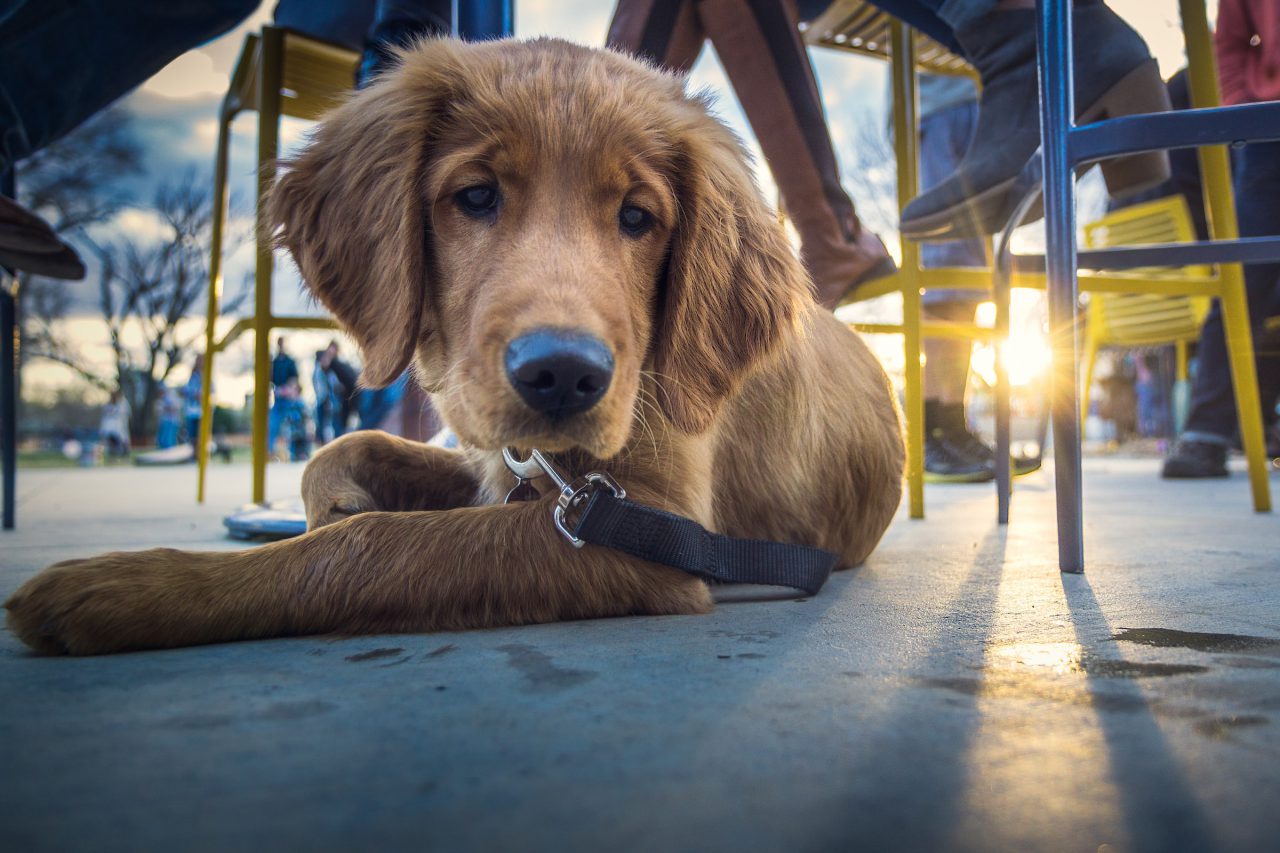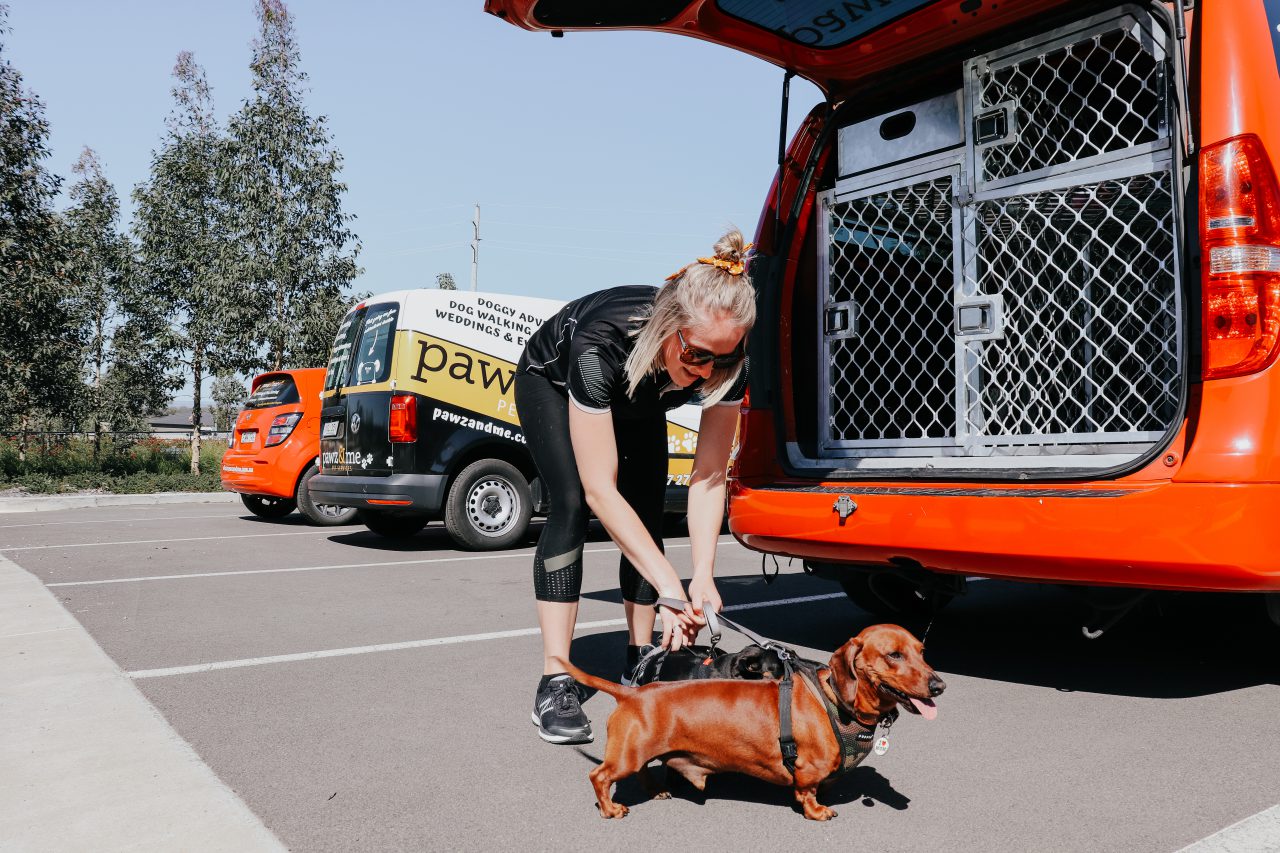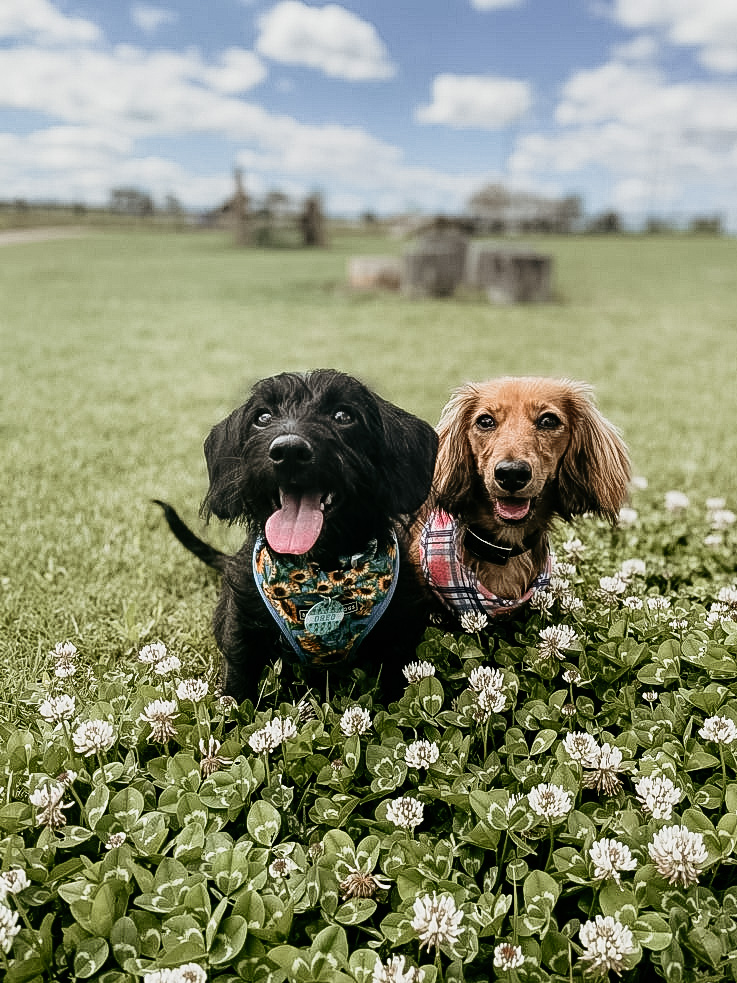We all know what an unsocialised dog looks like.
They’re the ones that bark incessantly at you through the fence during your morning walk because they heard you coming from 10 houses away.
They’re pulling the arm off their owner because another dog is approaching up ahead.
They’re cowering in fear every time a stranger walks up to pat them when out and about.
Unfortunately, they’re also often the ones confined to a tiny backyard with limited amusement or entertainment, and owners that ‘just don’t have time for them since they grew so big’.

So How Does This Happen?
Let’s check out some pretty heart-breaking statistics:
- Over 80% of dog owners state that their dog displays some unacceptable behaviours
- Over 20% of urban dogs are surrendered to pounds and shelters every single year, with the main reason for surrendering dogs being unacceptable behaviour.
- The main cause of death of puppies under one year of age is euthanasia due to behavioural problems. In fact, many studies have now shown that behaviour problems are the number one reason for euthanasia in pets, regardless of age.
If only these owners knew that it was their lack of time and effort spent training and socialising their dog that would be it’s ultimate demise. Many of the behaviour problems that these dogs are likely to have displayed could have been prevented with early education of the dog and owner.
Early exposure changes brain architecture.
2 words: Puppy School.
It’s an absolute must if you want to raise a happy, healthy, psychologically sound dog that does great with humans and animals alike.
Dog Training Expert, Dr Ian Dunbar, reckons dogs need socialisation from as early as 3 weeks. Dunbar also states that a dog that has lacked socialisation by eight weeks of age is psychologically impaired and will require tons of necessary exposure to curb bad behaviour in the long run, yet the effects of their limited socialisation will not become apparent for a while.
Your dog might seem fine at 8 weeks, 2 months, or 4 months, but slowly as they begin to grow out of their puppy stage, the bad habits and lack of training will present themselves more clearly, whether it be in the form of barking at innocent passer-by’s on the street, or a nip at another dog during a visit to the Dog Park.

Don’t limit them.
Expose them to new experiences which test all their senses, particularly sound, sight, and feeling. Nothing is off limits for a dog who is learning about the world around them!
Expose your puppy to people of all shapes and sizes. We encounter many, many dogs that experience behavioural problems around men and children, but have you considered why?
A dog owned by a young couple may never meet a child until the moment one is suddenly crouching over them, poking at their face and pulling at their tail, which will cause a dog to say ‘Hey! Don’t touch me there! Where’s my Mum & Dad?’, thus forming a deep-seated issue with other children in the future. What happens when the couple decides to have a baby and the dog and baby don’t get along? Can you guess which one they’ll get rid of?
Dunbar suggests that with a new puppy:
Aim to introduce them to 100 new people between 3-8 weeks, and 100 additional new people between 8-12 weeks.
Put your worries aside and make sure your dog socialises with other dogs of all shapes, sizes, and breeds.
A small dog that’s only used to small dogs won’t know how to handle a big dog when they eventually do, and a big dog needs to learn to play appropriately with small dogs and leave the big-boy rough play for the other big breeds.
Once you’ve worked on your dog’s good behaviour in a variety of new places and with a range of new people, they’ll be a pleasure to take anywhere, and their good behaviour will become as natural as breathing.
After all, a dog is most content when they are part of your life and your activities, and you’ll have the greatest canine companion imaginable. Could anything be better?
Need a little help?
That’s just what we’re here for. While you’re busy at work, away on holidays, or simply short on time, we can make sure your schedule doesn’t get in the way of your dog’s well-being and development.

If you’ve got an energetic dog that needs a little more than your average walk around the block, or you’re struggling to find the time to get your dog out of the yard and meeting some new canine and human friends, then our Dog Adventures are a great solution.
If you’re still struggling with your pooch’s socialisation and you feel you’re not quite ready to take the leap group outings just yet, then our one-on-one Dog Walking might be the best option for now. It’s all good! Our individualised walks are still able to provide a fun getaway whilst teaching your dog basic training and exposing them to new sights, sounds, and people within your neighbourhood to ensure they get the best out of their walks.
Get Some Inspo!
If you’re a Macarthur or Wollondilly local, we’ve compiled an awesome list of places ranging from off-leash areas to pooch-friendly cafes which you can take your dog to meet new people and pooches and encourage their socialisation.
How have your experiences been with socialising your dog? Let us known in the comments below or tag us in your posts on Facebook or Instagram!

